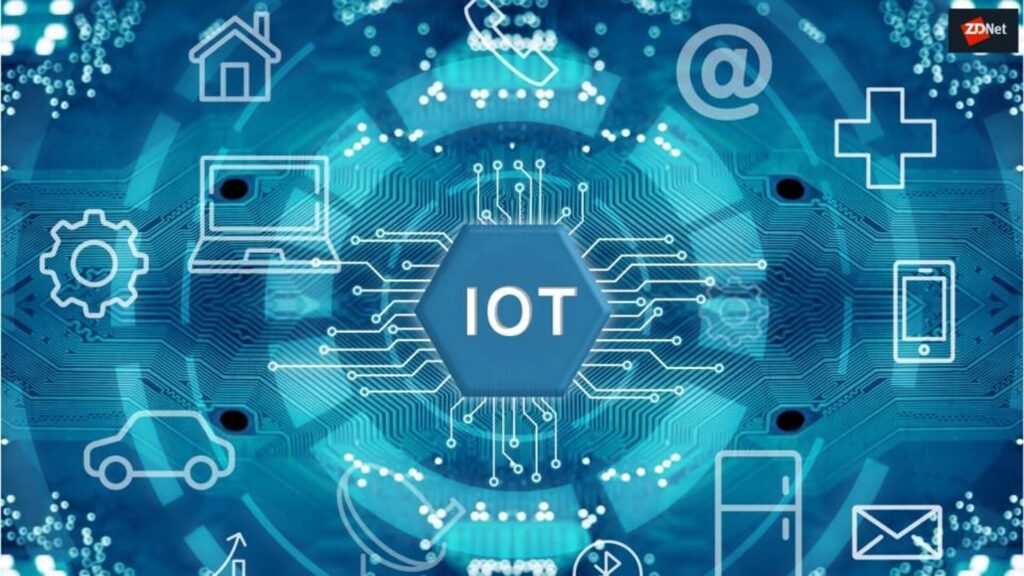The Internet of Things (IoT) revolution has transformed the way we live and work by connecting everyday objects and devices. IoT encompasses smartphones, wearable devices, home appliances, vehicles, and more, which gather and share data through connectivity. This revolution has impacted industries like healthcare and transportation, leading to better patient care and enhanced efficiency and safety. Smart homes and cities have also benefited from IoT, offering convenience, energy efficiency, and improved resource management. The Industrial Internet of Things (IIoT) has revolutionized manufacturing with improved productivity and cost savings. However, concerns exist around data security and privacy. The future of IoT looks promising with advancements in connectivity, artificial intelligence, and machine learning, leading to more intelligent applications. In healthcare, IoT will play a vital role in remote patient monitoring and personalized healthcare. In the energy sector, IoT will drive advancements in smart energy management and sustainability. Despite challenges, IoT has immense potential to shape a better future.
The Internet of Things Revolution: Connecting Devices for a Smarter World
Introduction
The Internet of Things (IoT) has become one of the most transformative technologies in recent years. It refers to the network of everyday objects embedded with sensors, software, and connectivity capabilities to enable them to collect and exchange data. The IoT revolution has brought about a new era of interconnectedness, where devices communicate with each other autonomously, making our lives more convenient and efficient.
What is the Internet of Things?
The Internet of Things encompasses a wide range of devices including smartphones, wearable devices, home appliances, industrial machinery, vehicles, and much more. These devices are equipped with sensors and actuators that enable them to gather data and interact with their environment or other devices. Through network connectivity, they can share this data and make intelligent decisions based on the information received.
The Impact of IoT
The IoT revolution has had a profound impact on various industries and sectors. In healthcare, IoT devices like wearable fitness trackers and remote patient monitoring systems have enabled better tracking of health parameters and improved patient care. In transportation, IoT has facilitated the development of smart traffic management systems, autonomous vehicles, and real-time tracking of shipments, leading to enhanced efficiency and safety.
Smart Homes and Cities
One of the most visible impacts of IoT is the concept of smart homes and smart cities. In smart homes, devices like thermostats, lights, and security systems can be controlled remotely through smartphones or voice assistants. This not only provides convenience but also enables energy efficiency and cost savings. Smart cities leverage IoT to optimize resource management, improve public safety, and enhance the quality of life for citizens.
Industrial Internet of Things (IIoT)
The Industrial Internet of Things (IIoT) has also revolutionized the manufacturing and industrial sectors. Sensors embedded in machinery and equipment can monitor performance, anticipate maintenance requirements, and optimize production processes. This has led to increased productivity, reduced downtime, and significant cost savings for businesses.
Challenges and Concerns
While the IoT revolution brings numerous benefits, it also presents challenges and concerns. One of the main concerns is data security and privacy. With the vast amounts of data being collected and transmitted, there is an increased risk of cyberattacks and unauthorized access. Additionally, there are concerns regarding the ethical usage of personal data and the potential for IoT devices to be hacked and used for malicious purposes.
The Future of IoT
The potential of IoT is limitless, and its future looks promising. As technology advances, we can expect more innovative applications of IoT in various domains. With the advent of 5G networks, the connectivity and speed of IoT devices will drastically improve, enabling real-time monitoring and more complex autonomous systems. The integration of artificial intelligence and machine learning will also enhance the capabilities of IoT devices, enabling them to make more intelligent and predictive decisions.
Smart Healthcare
In the healthcare sector, IoT will continue to play a vital role in remote patient monitoring, disease management, and personalized healthcare. Wearable devices will become more advanced, capable of continuously monitoring vital signs and detecting potential health issues. IoT will enable seamless integration of healthcare data, leading to better diagnosis and treatment options.
Smart Energy and Sustainability
IoT will also drive advancements in smart energy management and sustainability. Smart grids will optimize energy distribution and consumption, reducing waste and carbon emissions. IoT devices will enable consumers to monitor and control their energy usage, promoting energy efficiency and cost savings. This will contribute to a greener and more sustainable future.
Conclusion
The Internet of Things revolution is connecting devices in ways we could never have imagined. From our homes to our cities, industries, and healthcare systems, IoT is transforming the way we live and work. While there are challenges and concerns to address, the potential benefits are immense. As we move towards a more interconnected and smarter world, it is crucial to ensure the security, privacy, and ethical use of IoT technologies. With continued innovation and advancements, the Internet of Things will undoubtedly shape a better future for all.
